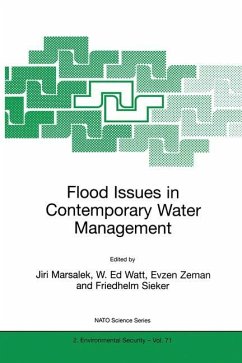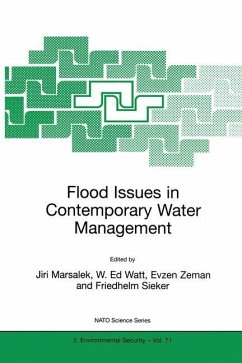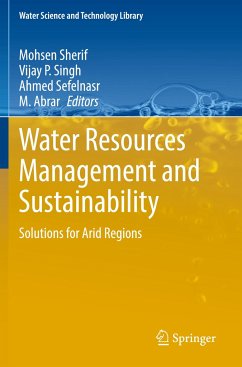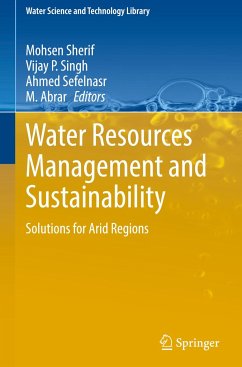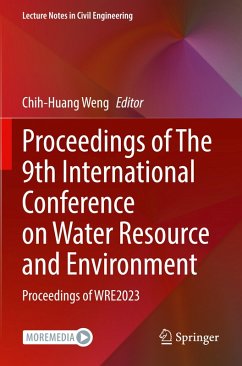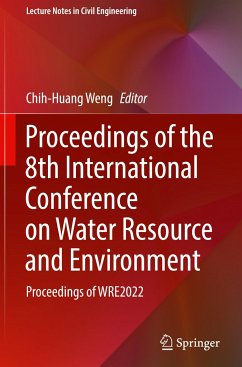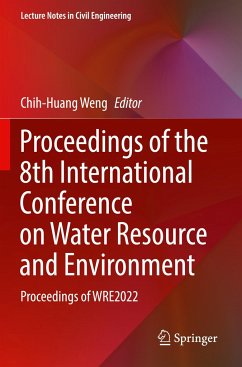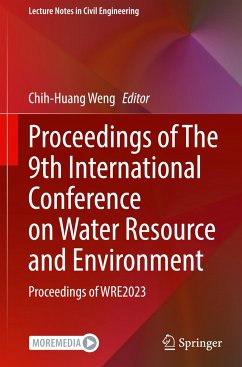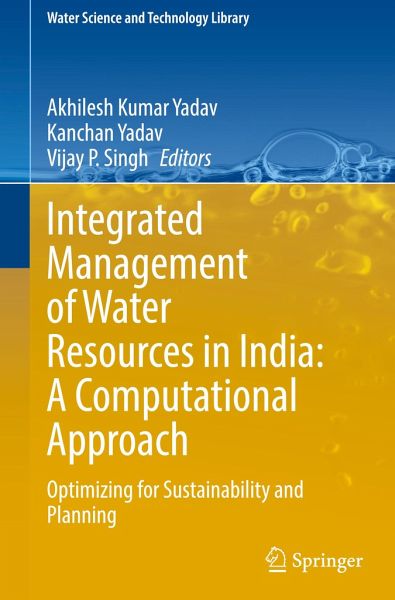
Integrated Management of Water Resources in India: A Computational Approach
Optimizing for Sustainability and Planning
Herausgegeben: Yadav, Akhilesh Kumar; Yadav, Kanchan; Singh, Vijay P.

PAYBACK Punkte
65 °P sammeln!
This book tackles the complexities of water management in India. Using computational tools, it provides comprehensive information on water availability, demand, climate change, integrated management, and governance. A must-read for researchers, policymakers, and water managers.The book is structured to provide a holistic understanding of water resources in India and the need for an integrated approach to their management. It explores various aspects of water management, including data collection and analysis, water allocation and planning, water quality management, and the intricate interdepen...
This book tackles the complexities of water management in India. Using computational tools, it provides comprehensive information on water availability, demand, climate change, integrated management, and governance. A must-read for researchers, policymakers, and water managers.
The book is structured to provide a holistic understanding of water resources in India and the need for an integrated approach to their management. It explores various aspects of water management, including data collection and analysis, water allocation and planning, water quality management, and the intricate interdependencies within the water-energy-food nexus. One of the key focuses of this book is the application of computational approaches in the management of water resources. We explore the use of advanced modeling, simulation, and optimization techniques to facilitate decision making, assess water availability, and predict future scenarios. By employing computational tools, our goal is tobridge the gap between theoretical concepts and practical implementation, empowering water managers, policymakers, researchers, and other stakeholders to make informed and effective decisions.
Throughout the book, we present case studies highlighting the application of computational approaches in diverse water management scenarios in India. These case studies offer valuable information on real-world challenges and demonstrate the potential of computational techniques to address complex water resources problems. We also explore the importance of stakeholder engagement, participatory approaches, and collaborative governance models, recognizing the importance of inclusive decision-making processes and local knowledge in achieving sustainable water management. The book is expected to serve as a valuable resource for students, researchers, professionals, and policymakers involved in water resource management in India. We aim to contribute to the ongoing efforts to ensure the availability of clean and adequate water resources for present and future generations.
The book is structured to provide a holistic understanding of water resources in India and the need for an integrated approach to their management. It explores various aspects of water management, including data collection and analysis, water allocation and planning, water quality management, and the intricate interdependencies within the water-energy-food nexus. One of the key focuses of this book is the application of computational approaches in the management of water resources. We explore the use of advanced modeling, simulation, and optimization techniques to facilitate decision making, assess water availability, and predict future scenarios. By employing computational tools, our goal is tobridge the gap between theoretical concepts and practical implementation, empowering water managers, policymakers, researchers, and other stakeholders to make informed and effective decisions.
Throughout the book, we present case studies highlighting the application of computational approaches in diverse water management scenarios in India. These case studies offer valuable information on real-world challenges and demonstrate the potential of computational techniques to address complex water resources problems. We also explore the importance of stakeholder engagement, participatory approaches, and collaborative governance models, recognizing the importance of inclusive decision-making processes and local knowledge in achieving sustainable water management. The book is expected to serve as a valuable resource for students, researchers, professionals, and policymakers involved in water resource management in India. We aim to contribute to the ongoing efforts to ensure the availability of clean and adequate water resources for present and future generations.






